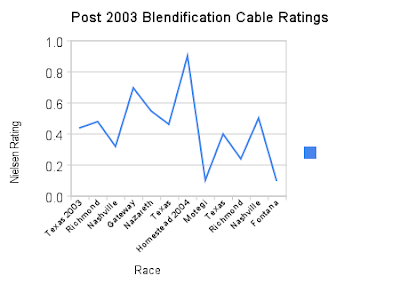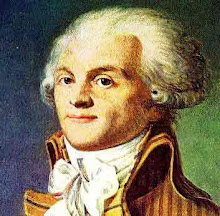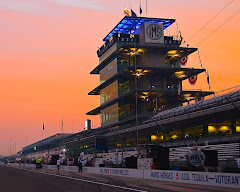
Following on the heels of a similar announcement at Chicagoland Speedway, management at ISC sister track Kansas Speedway now says that customers may purchase tickets separately for the NASCAR Cup and IndyCar Series events in 2010.
The Kansas City Business Journal has the complete story.
Sink or Tread Water
Given the demonstrated unpopularity of the series, any change that might force an IndyCar event to live or die according to its ability to generate legitimate value in the marketplace must be considered an unfortunate turn for the league.
IndyCar needs to race at venues such as Toronto and Barber Motorsports Park, where race day attendance of 30,000 or so is thought to be pretty good. Events such as these typically require subsidies of one type or another. They are the unmistakable signs of market rejection.
Incidentally, Milwaukee drew almost 30,000 this year. However, there, the government is not amenable to requests for subsidies. Thus, the Milwaukee Mile is gone from IndyCar racing.

Unfortunately, the International Speedway Corporation is a private, for-profit firm. It undertakes only those projects that might produce an operating profit. IndyCar race promoters must pay the IRL a sanction fee that is in excess of market value; this allows the league to pay its largely insolvent racing teams a sum that exceeds their market value; this is required because operating an IndyCar team costs approximately five times the market value that an IndyCar team produces.
The cascade of prices in excess of values is the reason that IndyCar will not race at Richmond next season.
Sadly, barring a sudden surge of U.S. consumer enthusiasm for international drivers and overpriced cars and engines, a similar fate likely awaits the IndyCar events at Kansas and Chicagoland.
Roggespierre























